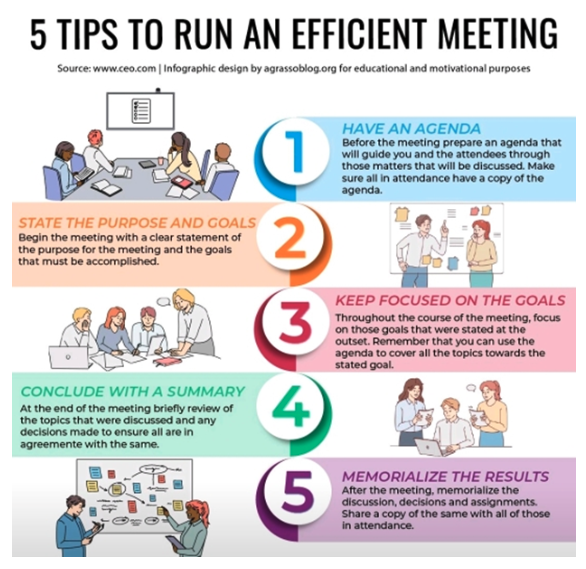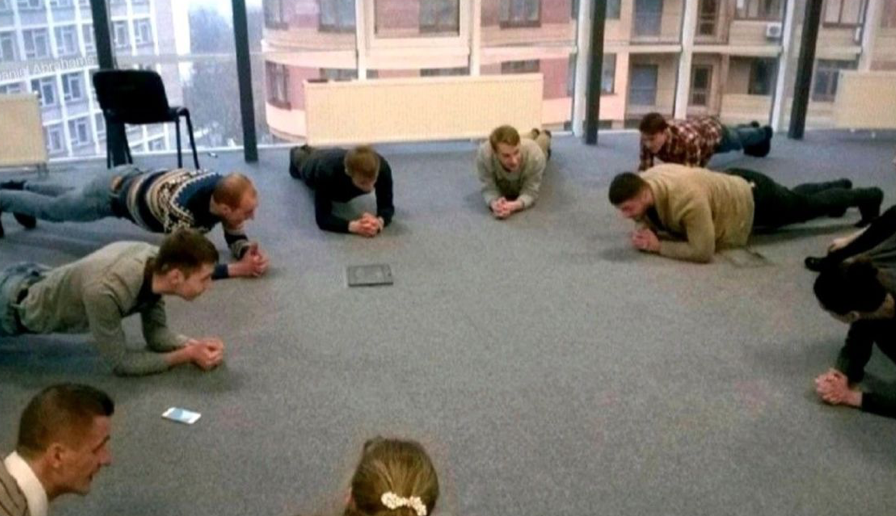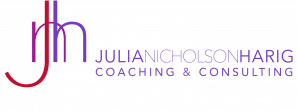Hello Friends!
You know how sometimes one topic is so top of mind that even when you are intending to talk about something entirely different, that topic ends up being the focus? That keeps happening when I’m working with teams right now. All conversations, team workshops, and keynotes focus in on Collaboration and Meetings.
To be more specific, about Collaboration and Meeting *Overload*.
I gave a Keynote this past week on Effective Teams, and during the breakout sessions, the groups could have talked for 10x as long! Because they were brainstorming about how to run better meetings.
During the Strategy Workshop I ran with a leadership team a few weeks ago, we talked extensively about workload, the pace of work, and how to prioritize time.
So since this seems to be a topic on everyone’s mind at the moment, I thought I’d make it the subject of this week’s newsletter too!!
Particularly because as the comedian Dave Barry so aptly put it:
“If you had to identify in one word the reason why the human race has not achieved and never will achieve its full potential that word would be meetings.“
Let’s change that, shall we?
COLLABORATION IS A GOOD THING…
Back when I was in Business School, the buzzword of the day was Synergy. It was the goal for everything.
Collaboration may be the buzzword of today, but it – like synergy – is actually something that we do genuinely want to encourage, support, and achieve. Collaborating – which really just means working well together as a team – means the whole is greater than the sum of its parts.
There are a lot of positives to come out of creating collaborative teams (as this article on the 10 Reasons why Collaboration is Important in the Workplace points out), but unfortunately, the main drawback is that we’ve been so focused on those positives that we’ve created Collaboration Overload!!
To that end, I have started an accountability group with a few friends. I know I want to develop and prioritize healthy habits, like drinking enough water and getting regular movement during the work day, and having a few trusted friends on the journey with me makes it a lot more fun, as well as a lot more likely to happen!
COLLABORATION OVERLOAD…
As the Harvard Business Review so succinctly put it:
“Managers don’t typically intentionally overspend financial budgets, but they are overspending their people by asking them to collaborate so broadly and frequently on all forms of work without understanding the true costs.”
Their study on collaboration “was grounded in our prior research showing that priority overload has become one of the biggest derailers of team success. In the organizations that we’ve studied, we’ve found that 49% of employees are experiencing priority overload. Employees are drowning in excessive or misaligned goals set by too many external stakeholders with competing needs and demands.” [emphasis mine]
Creating a collaborative and effective team takes leadership – and works best when it starts at the top with managers who set the tone by outlining clear and reasonable expectations, showing they are open to feedback and participating in the processes and communication channels they set up.
There are two main contributors to Collaboration Overload: too many priorities, and too many meetings!
EFFICIENT MEETINGS…
Is that an oxymoron?! 😄
Like many skills needed in the professional world, how to run a meeting efficiently and effectively is a skill that is rarely taught!! It’s just expected that we all know how to do this well. But I think we can agree that it is actually a very rare skill indeed, right?!?

HOW TO FIX MEETINGS…
If you’ve been reading this newsletter for a while, you’ll know that I’m a huge fan of Adam Grant (an Organizational Psychologist at the Wharton School). His hilariously titled podcast episode, Why Meetings Suck and How to Fix Them gives some excellent advice on how to improve meetings and reduce overload.
His key points are:
1. Replace your morning check-in meeting with a check-in message.
Eighty-three percent of employees prefer this method of checking in, which doesn’t interrupt their workflow, the researchers say. Having information about what everyone is working on in a Slack or other chat conversation has some serious advantages.
2. Only hold meetings when absolutely necessary.
There are only four good reasons to meet: to learn something together, to decide something together, to actually accomplish a task together, or to bond.
the only good reasons to meet are to review past work and learn from it; to clarify and support something, such as a policy or goal; or to distribute work within a team.
3. Let people opt out.
It can be tempting to invite a lot of your team members to a meeting so that everyone will be equally well informed and no one will feel left out. But, as the researchers note, the less important a topic is to someone’s specific job, the likelier they are to be answering their email – or playing online solitaire – while the meeting goes on.
Simple but effective!!
Or there’s always this option for making meetings shorter:

Plank anyone?!
😄😄😄
GET COMFORTABLE WITH SAYING NO…
One of the key skills required to help reduce overload is learning to get comfortable with saying no.
And as Rob Cross advises in his TED Talk on How to be a Team Player without Burnout Out, “remember that your answer doesn’t have to be a binary yes or no. If you get a request from a boss or a colleague, chances are they have no idea what obligations you’re juggling. Be clear about what projects or deadlines you have ahead. Ask them to help you prioritize. And if you just don’t have the bandwidth, ask the person if you can show them how to do the task they’re asking or discuss if there’s a different way to accomplish their goals. At the end of the day, every yes means saying no to something else. Save your yeses for when they really matter to you.”
Couldn’t agree more, Rob!
WHAT I’M READING…
Novelists have my complete admiration for being able to create entire worlds in my imagination merely through their words. It’s an incredible gift! To create out of two-dimensional black and white words on a page, a three-dimensional technicolour world in my imagination. It is true magic!
That was the thought underlying my reading of Trust by Hernan Diaz. Not only was the book beautifully written, the book was actually 4 different “books”, each written by a different character. It was incredible how Diaz managed to have four completely distinct voices and writing styles, to create four different perspectives on one story.
Barack Obama had Trust as one of his favourite books of 2022, and I can certainly see why! It really made you question your own biases – as a reader, you unconsciously were making assumptions based on each book, which – at least in my case – only became apparent once I was reading the four “book”.
It’s the story of a husband and wife living in 1920s New York City; he a financier, she an ill heiress. It’s virtually impossible to describe the story here and do it proper justice, but suffice to say, I loved it. And I can see why it won the Pulitzer Prize for Fiction!!

How are you feeling about meetings and collaboration overload these days? I’d love to hear your thoughts! And if you have found any methods to keep that overload from getting too out of control!
It was Canadian Thanksgiving this weekend, so wishing all my Canadian family, friends & readers a wonderful Thanksgiving!!
Be emotional. Stay healthy.
Hugs,



